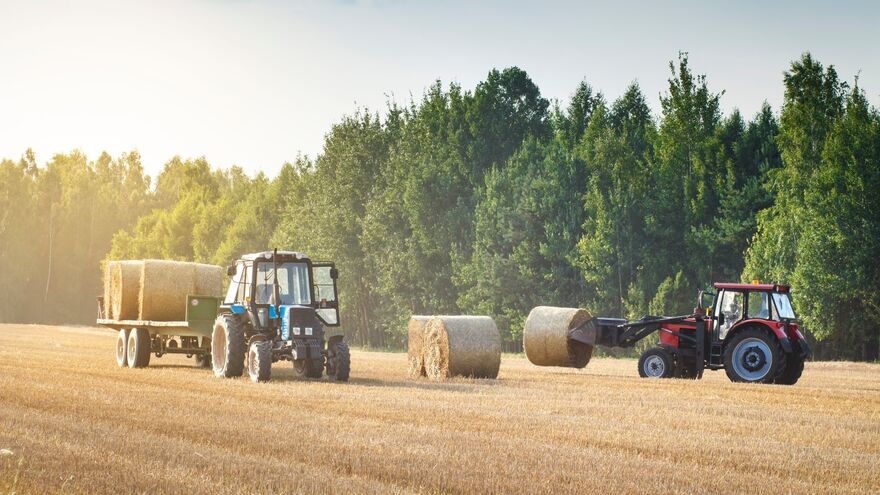From 1st September 2024 changes are being made to the eligibility and suitability tests under the Agricultural Holdings Act 1986 (AHA 1986). The new succession rules will apply to a prospective successor if a tenant dies or retires after the date of implementation of the changes. If the tenant dies or retires prior to 1st September 2024, the current succession rules will continue to apply.
Current Tests
Under the current rules, an applicant for succession to an AHA tenancy must demonstrate, amongst other matters, that they are both “eligible” and “suitable” to succeed to the tenancy.
The tests for demonstrating eligibility are technical in nature, whereas suitability involves much more discretion for the Tribunal. Currently, to prove their eligibility:
- An applicant must be a “close relative” of the retiring or deceased tenant, such as a spouse or civil partner or a child.
- The applicant’s source of livelihood during at least 5 of the last 7 years (or 2 or more discontinuous periods together amounting to not less than 5 years) must have been derived from the holding in question, or another unit of which the holding is a part; and
- An applicant must not occupy a “commercial unit” of agricultural land (Commercial Unit Test).
Determining suitability involves a review of all relevant matters which relate to whether an applicant is suitable to succeed as the tenant of the holding. This currently involves consideration of the following non-exhaustive list of specific matters:
- Training & experience;
- Age;
- Physical health;
- Financial standing; and
- Any views of the landlord of the holding as to the suitability of the applicant.
It is up to the applicant to prove that they are suitable to succeed to the tenancy.
Changes to the Tests
The Commercial Unit test is being removed and will no longer be considered in applications for succession.
The regulations setting out the new Suitability test still require the Tribunal to have regard to all relevant matters; the list now includes:
- The person’s likely capability and capacity to farm the holding commercially, with or without other land, taking into account the need for high standards of efficient production and care for the environment in relation to managing the holding;
- The person’s experience, training and skills in agriculture and business management;
- The person’s financial standing and their character;
- The character, situation and condition of the holding; and
- The terms of the tenancy.
Then, having had regard to all of the relevant matters governing suitability, the Tribunal has to be satisfied that the applicant for succession would be among the candidates to whom a prudent and willing landlord would be willing to grant a tenancy if the applicant had applied on the open market. Many commentators refer to this as being “shortlisted” for the tenancy. The Tribunal must disregard all offers of rent for the holding and the age of the person applying.
These changes to the suitability test show the government’s increased focus on ensuring that high standards of commercial farming are balanced with a renewed focus on environmental considerations.
The new rules also remove the minimum age of a tenant who wants to retire from an AHA tenancy.
From a potential successor’s viewpoint, this change does not require them to be the best possible tenant, but to demonstrate that they would be shortlisted for the tenancy on the basis of the matters set out above. Prospective successors should be focussing early on how they can demonstrate to the Tribunal that they are eligible and suitable, on all the relevant tests, to succeed to the relevant holding, including preparing a bank of evidence to support this given the timescales for applying for succession. If a potential successor is applying following the death of a close relative, having a bank of evidence to call upon may make the process easier given the difficult surrounding circumstances.
Depending on the circumstances and relationship between the landlord and the prospective successor, there may be opportunities to deal with an agreed succession taking in new terms agreed with the applicant or to negotiate new long-term farm business tenancy arrangements.
There are strict time limits for the services of notices and counter-notices under the AHA, as well as the making of applications and the submission of responses to those applications. Advice should be sought immediately on the death of a tenant who holds an AHA tenancy or on a notice of retirement.
If you have any questions, or if you would like more information on this topic, please contact Katharine Danks at [javascript protected email address] or on 01603 284257.
The information on this site about legal matters is provided as a general guide only. Although we try to ensure that all of the information on this site is accurate and up to date, this cannot be guaranteed. The information on this site should not be relied upon or construed as constituting legal advice and Howes Percival LLP disclaims liability in relation to its use. You should seek appropriate legal advice before taking or refraining from taking any action.

